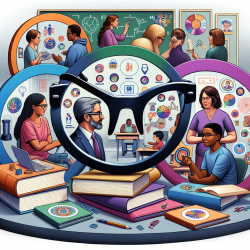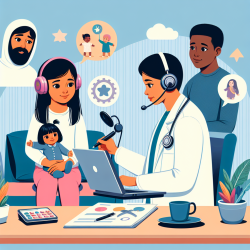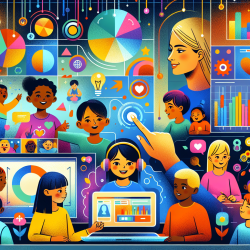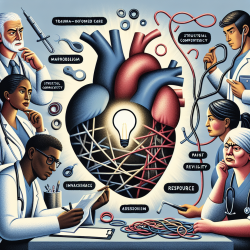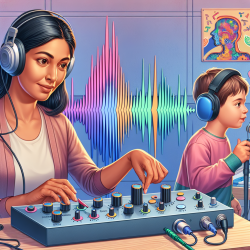Unlocking the Power of Emerging Learning Technologies in Speech-Language Therapy
In the rapidly evolving landscape of education and therapy, staying ahead of the curve is crucial for practitioners aiming to deliver the best outcomes for their clients. A recent synthesis of systematic review research on emerging learning environments and technologies provides invaluable insights that can significantly enhance your practice. This blog delves into the key findings of this research and explores how you can leverage these insights to improve your skills and outcomes in online therapy services.
Understanding the Research
The research, conducted by Martin, Dennen, and Bonk (2020), synthesizes findings from various systematic reviews on emerging learning technologies. These include social media, massive open online courses (MOOCs), special education technology, mobile learning, game-based learning and gamification, adaptive learning, and learning analytics. Each of these areas presents unique opportunities for enhancing educational and therapeutic practices.
Key Takeaways for Practitioners
- Social Media: Social media platforms can be powerful tools for professional development and peer collaboration. Engaging with professional communities on platforms like LinkedIn and Twitter can provide access to the latest research, trends, and discussions in speech-language pathology.
- MOOCs: Massive open online courses offer flexible learning opportunities for practitioners to gain new skills and knowledge. Consider enrolling in MOOCs related to speech-language therapy to stay updated with the latest advancements.
- Special Education Technology: Leveraging technology designed for special education can enhance therapy outcomes. Tools such as speech-generating devices and interactive apps can be integrated into therapy sessions to support diverse learning needs.
- Mobile Learning: Mobile devices offer portability and accessibility, making them ideal for delivering therapy sessions. Explore mobile apps that facilitate speech and language exercises, enabling clients to practice skills outside of scheduled sessions.
- Game-Based Learning and Gamification: Incorporating game-based elements into therapy can increase client engagement and motivation. Utilize educational games that target specific speech and language goals, making learning fun and interactive.
- Adaptive Learning: Adaptive learning technologies tailor content to individual client needs, ensuring personalized therapy experiences. Implement adaptive tools that adjust exercises based on client progress, optimizing learning outcomes.
- Learning Analytics: Analyzing data from therapy sessions can provide insights into client progress and areas needing improvement. Use analytics to inform data-driven decisions and customize therapy plans for each client.
Encouraging Further Research
While the research provides a comprehensive overview of current trends, it also highlights the need for ongoing exploration in these areas. Practitioners are encouraged to engage in further research to understand the full potential of these technologies and their applications in speech-language therapy.
By staying informed and actively participating in the research community, practitioners can contribute to the advancement of the field and ensure they are delivering the most effective and innovative therapy solutions to their clients.
To read the original research paper, please follow this link: A synthesis of systematic review research on emerging learning environments and technologies.



